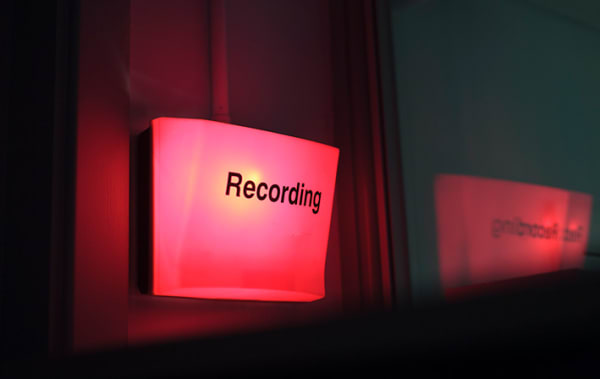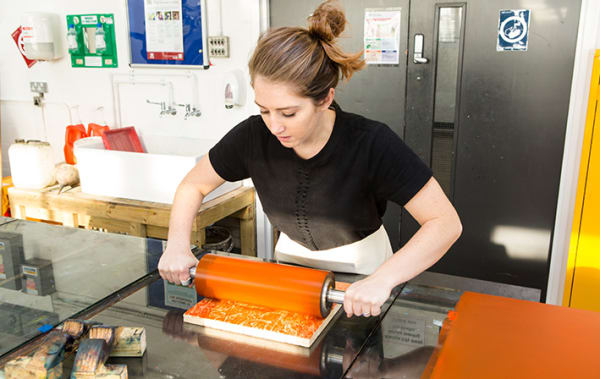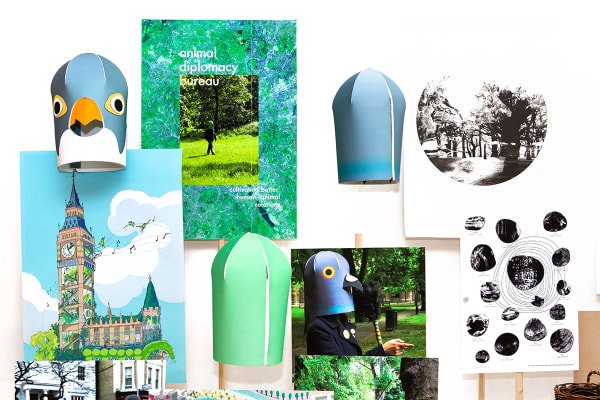Course units
We are committed to ensuring that your skills are set within an ethical framework, and we have worked to embed UAL’s Principles for Climate, Racial and Social Justice Principles into the curriculum and in everything we do.
As part of this initiative, we’ve shaped our courses around social and environmental sustainability principles that ensure learning outcomes reflect the urgent need to equip you with the understanding, skills, and values to foster a more sustainable planet. Our aim is to change the way our students think, and to empower you to work towards a sustainable future.
In common with all courses at the University of the Arts London, this course is credit rated. Years 1 and 2 must be passed to enter into Year 3. Your degree is attained through full completion of the third year.
Year 1
Introduction to Design for Climate Justice (20 credits)
This unit aims to introduce you to your course and its subject specialism of designing for climate justice, as well as to effective learning and studentship at undergraduate level.
Visual Communication Principles (40 credits)
This unit introduces visual communication design skills and principles that will enable you to interrogate, decipher and communicate ecological and social issues from multiple, interconnected perspectives.
Design Futures (40 credits)
You’ll be supported to develop methodologies for understanding, imagining and challenging paradigms through conceptual design and futures thinking, and be introduced to ‘Theory of Change’ practices that will help you plan, manage and evaluate the designing process.
Contextual and Theoretical Studies 1 (20 credits)
You’ll be introduced to histories, theories and debates in relation to both visual and material culture and Design School specialisms.
Year 2
Professional Practices (20 credits)
You’ll develop your creative attributes such as ‘making things happen’, showcasing your talents to others and navigating change, whilst also expanding your knowledge of the creative, cultural and design industries.
Nature-Centred Designing (40 credits)
This unit aims to support you in questioning the value hierarchy of living and non-living things, and to both critically consider and creatively communicate more-than-human perspectives.
Collaborative Climate Narratives (40 credits)
You’ll explore the role of visual communication design in explaining and envisioning contemporary climate-related narratives that stem from understanding creative, ethical and just systems of collaboration.
Contextual and Theoretical Studies 2 (20 credits)
This unit will broaden and further develop your knowledge and understanding of the historical, social, practical, environmental, theoretical and cultural ideas, practices and phenomena of contemporary culture, design, art and media.
Year 3
Design for Climate Justice Major Project (60 credits)
You’ll be invited to plan, direct and resolve a visual communication personal project, where you’ll take a proactive lead in designing for climate justice.
Building a Changemaker’s Portfolio (20 credits)
This unit will help you realise your potential to become an industry changemaker by supporting you to gain self-confidence and nurture your professional practices. In turn, this will enable you to catalyse and drive change within an organisational context.
Contextual and Theoretical Studies 3 (Route A) (40 credits) OR
You’ll have an opportunity to bring together your skills, knowledge and understanding to generate an extended piece of academic writing which draws on critical reflection and inquiry into design as a discipline.
Contextual and Theoretical Studies 3 with Practice (Route B) (40 credits)
Drawing upon the knowledge and analytical skills that you’ve acquired in relation to visual culture and critical theory, you will be prompted to develop written work accompanied by ‘designer-ly’ outcomes that expand upon your research, its concepts and critical analysis.
Optional Diploma between Years 2 and 3
Between Years 2 and 3 of your course you will also have the opportunity to undertake one of the following qualifications:
Diploma in Professional Studies (DPS) (Optional)
This additional diploma can be taken between years 2 and 3. With support from your tutors, you’ll undertake an industry placement for a minimum of 100 days/20 weeks. As well as developing industry skills, you’ll gain an additional qualification upon successful completion.
Diploma in Creative Computing (Optional)
Between Years 2 and 3, you can undertake the year-long Diploma in Creative Computing. This will develop your skills in creative computing alongside your degree. After successfully completing the diploma and your undergraduate degree, you will graduate with an enhanced degree: BA (Hons) Design for Climate Justice (with Creative Computing).







